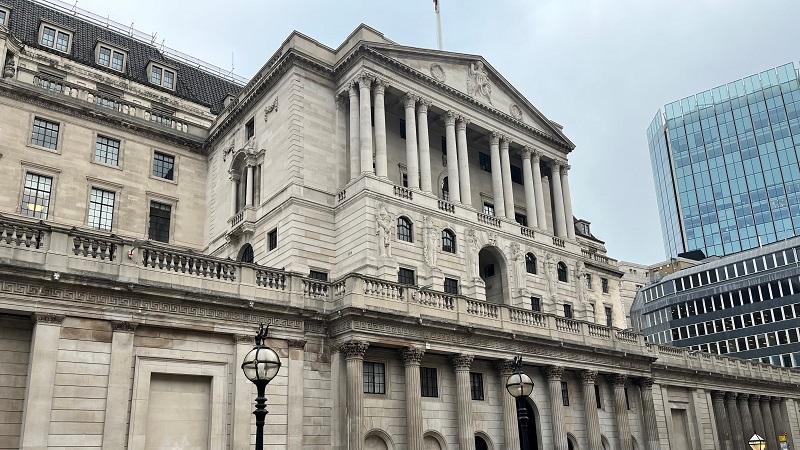Monthly gross domestic product dropped 0.3% in the month of October for the UK, for a period when analysts expected just a 0.1% decrease.
Services, which the Office for National Statistics called the “main contributor to the fall in growth in GDP”, fell 0.2% for October after managing a 0.2% increase in September. Production, which experienced no growth in September, fell by 0.8% in October.
See also: Should we still be worried about inflation?
October also proved to be a challenging month for the construction sector, which shrank by 0.5% following September’s 0.4% uptick. In total, construction output is estimated to have fallen 0.3% in the three months to October.
Danni Hewson, head of financial analysis at AJ Bell, said: “Awful weather and the disruption caused by strikes won’t have helped, but even with the continued squeeze on consumer spending, the contraction in economic growth recorded in October was greater than had been expected.
“All sectors of the economy were affected as the impact of two years of interest rate hikes work their way through the system. The big question is whether October is the harbinger of recession or a tipping point as wage growth finally surpasses inflation?
“No one expects the Bank of England to do anything other than hold firm on rates as it continues the fight to bring inflation back down to that elusive 2% target. But the economy is weakened, treading water until such a time as those rate hikes can start to be unravelled.”
Michael Field, European market strategist at Morningstar, noted that compared to the discussions of recession at the beginning of 2023, a lack of change in either direction during the year is “not a bad result”.
“With attention already turning to 2024, and the potential for interest rate cuts, investors are rightly hoping for a brighter period ahead. Interest rate cuts should prove a welcome respite for businesses and households, struggling with high debt payments. However, investors should note that the effect of cuts will not be immediate,” Field said.
“The damage done by high interest rates is still feeding through the economy. Mortgage lending for example is down more than 40% on last year, a deterioration compared to last month. Therefore, any cuts from here will take time to materialise in terms of increased business investment and consumer spending. Meaning, while 2024 might be a step in the right direction for the economy, don’t expect a fast rebound in economic growth.”
Tomorrow, Thursday 14 December, the Bank of England will meet to discuss interest rates, which are expected to stay at the current level of 5.25%.
Neil Birrell, chief investment officer at Premier Miton Investors, said: “It’s clear that economic growth has been stalling, as should be expected given policy measures, which is where all eyes will be focused now. This data is historic but it’s all about what happens next, and we will hear the thoughts of major central banks in the next two days. The Bank of England will be pleased that their actions have worked, but worried that they have gone too far. We will find out tomorrow.”
Charles Hepworth, investment director of GAM Investments, believes at this point, inflation risks continue to oust recession worries.
“While this doesn’t signify a recession is here, it does raise questions of whether it isn’t far off and this stagnant picture of the UK economic performance will keep up the pressure on the Bank of England to begin to cut rates next year,” Hepworth said.
“Tomorrow, we have the bank’s interest rate decision but don’t expect any change right now from the bank, with inflation pressures outweighing any downturn pressure.”









